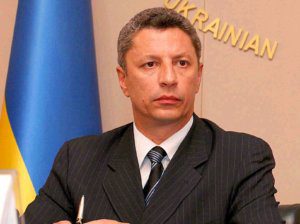
The head of the Democratic Progressive Party (DPP), Lai Tsing-jeou, has won the presidential election in Taiwan, Western media report.
He received 40.2% of the vote, significantly outpacing his opponents. It is reported that almost all ballots have been counted. However, the Central Election Commission has not yet announced the voter turnout.
The media reminds us that the DPP will remain in power in Taiwan for the third consecutive term: Tsai Ing-wen has held the presidency for two four-year terms since 2016.
Hou Yui of the Kuomintang Party, who won 33% of the vote, has already congratulated Lai Tsing-jeou on his victory. Ke Wen-jeou, the founder and leader of the Taiwan People’s Party (TPP), who managed to win 26.33% of the vote, also conceded defeat.
Later, Lai Tsingde thanked everyone who voted for him, as well as Hou Yui and Ke Wen-jeou, who agreed with the election results.
“We are telling the international community that when it comes to choosing between democracy and authoritarianism, we choose the side of democracy,” he said.
“The party of current Vice President Lai, which defends Taiwan’s identity and rejects China’s territorial claims, is running for a third term, an unprecedented development in Taiwan’s current electoral system,” Reuters notes.
The European Union welcomed the elections held in Taiwan on January 13, citing a common commitment to democracy.
“Our respective systems of governance are based on a common commitment to democracy, the rule of law and human rights. The European Union emphasizes that peace and stability in the Taiwan
Strait area is key to regional and global security and prosperity,” a statement by a spokesperson for the European External Action Service (EEAS) said in a statement released on Saturday in Brussels.
At the same time, the EEAS spokesperson noted that the European Union remains concerned about the growing tensions in the Taiwan Strait and opposes any unilateral attempts to change the status quo.”
Earlier, the Experts club information and analytical center released a video about the most important elections in the world in 2024, which predicted the victory of an anti-Chinese candidate for the presidency of Taiwan. More information about the 2024 global elections can be found in the video here: https://youtu.be/73DB0GbJy4M?si=O98WbmetBtle9DnH
Subscribe to the Experts Club channel: https://www.youtube.com/@ExpertsClub

Citizens of Brazil on Sunday will vote in a general election, which will determine the new president and vice president of the country, the composition of the National Congress (parliament), governors, lieutenant governors and deputies of state legislatures.
The main attention is riveted to the election of the head of state. Seven candidates are vying for the post, but two have the most support among the Brazilian population: incumbent President Jair Bolsonaro and former President Luiz Inacio Lula da Silva. Bolsonaro is a right-wing politician, while Lula da Silva represents the left.
According to the latest Datafolha poll before the vote, Lula da Silva could get 50% of the vote in the first round, and Bolsonaro – 36%. The remaining votes were distributed among five more candidates. Observers note that it cannot be ruled out that Lula da Silva, despite a large lead over Bolsonaro, will not be able to achieve election in the first round.
To win in the first round, a candidate needs to get more than 50% of the votes. If this fails, then a second round is held between the two strongest candidates.
Lula da Silva is 76 years old, he was previously going to take part in the 2018 elections, but he could not do it, as he was convicted and ended up in prison. Despite this, the Brazilians continued to have sympathy for him, and, judging by the polls, even behind bars, Lula da Silva remained the most popular politician in the country.
As a result, the Brazilian Workers’ Party nominated Fernando Addada as a presidential candidate in his place. This politician lost to the current President Bolsonaro.
Lula da Silva ruled Brazil from 2003 to 2010, and in 2017 he was sentenced to nine and a half years in prison for money laundering and corruption. Later, the term was increased to 12 years. He himself never admitted his guilt, his lawyers eventually managed to appeal the verdict. In 2021, the country’s Supreme Court annulled his anti-corruption conviction. Now he can run for reelection again.
Brazilians remember his period in office due to his socially oriented economic policy, and the current election program is also built with a leftist bias: he focuses on the poorest segments of the Brazilian population, promises to expand social programs and increase funding for infrastructure projects, intends to fight for the conservation of forests in the Amazon in in contrast to Bolsonaro, who was criticized for heavy deforestation during his term.
Bolsonaro, 67, is a former military and congressman who was known in Brazil for his controversial remarks about ethnic and sexual minorities and women, as well as for his far-right conservative views, even before he assumed the presidency, and has repeatedly expressed nostalgia for military dictatorship in Brazil.
Bolsonaro has been criticized by many Brazilians for what they see as downplaying the severity of the COVID-19 pandemic. Polls showed that the citizens of the country believe that there is corruption in the government under Bolsonaro and that he is incapable of governing the country. Polls conducted throughout August and September indicated that Bolsonaro’s approval rate had fallen to record lows, with between half and two-thirds of respondents disapproving of his work at various times.
During the election campaign, Bolsonaro continued to voice conservative views, promising to defend the traditional values of Christians, criticize the country’s electronic voting system and even members of the election commission that they are “working against him.” Brazilians will remember his campaign for scandals: Bolsonaro made harsh, radical statements, which were then actively distributed on social networks, once he got into a fight with a blogger who criticized him at a public event.
In addition, Brazilians on Sunday will elect 27 out of 81 senators, 513 members of the Chamber of Deputies, 27 governors and members of state legislatures.

Batkivschyna Party leader Yuliya Tymoshenko and Opposition Platform – For Life head Yuriy Boyko are the favorites among possible presidential candidates in Zaporizhia region, supported by 22.0% and 18.3% of the region’s residents who participated in a Sociological Group Rating survey. The poll was carried out from November 16 to December 2, 2018. Some 1,600 residents of the region were interviewed. The sample was formed taking into account the age and gender structure of the region, as well as the type of settlement. The margin of error of the survey does not exceed 2.4%.
Showman and Servant of the People Party leader Volodymyr Zelensky was supported by 14.1% respondents, followed by incumbent President Petro Poroshenko – 8.4%, Radical Party leader Oleh Lyashko – 7.5% and Ours Party leader Yevhen Murayev. Civil Position Party leader Anatoliy Hrytsenko was supported by 5.1% of persons who participated in the survey.
BOYKO, CANDIDATES, LEAD, POROSHENKO, PRESIDENTIAL, TYMOSHENKO, ZAPORIZHIA REGION